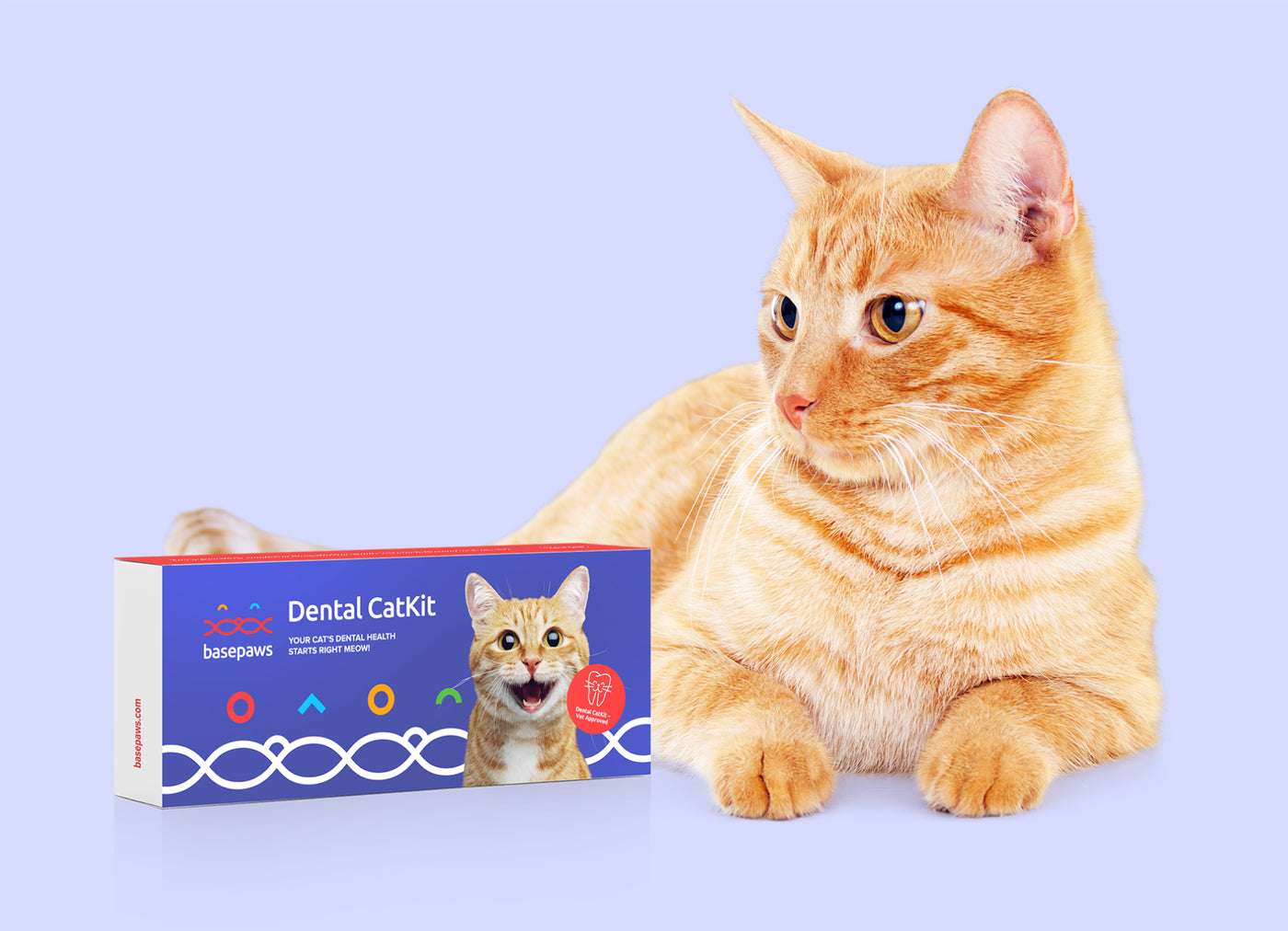
Here at Basepaws, we have been checking in with our customers about their pet’s general health for years and we will be the first to say - genetics isn't everything. Overwhelmingly, the #1 issue our cat parents focus on is dental health. More than 70% of our cat parent customers said they wanted better products that will keep their cat’s mouth healthy, so over the last 2 years we’ve been working on exactly this. I’m now excited to share the launch of the Basepaws Dental CatKit -- a unique, preventative dental test that uses latest innovations in microbiome and sequencing technology, all still done from the comfort of your own home.
Finally, a solution to one of the major problems in everyday cat care!
The microbes in a cat’s mouth can inform us of any developing dental issues before they are advanced enough to be visible by a veterinarian during a routine checkup. The cause for dental disease is the imbalance of good and harmful microbes living in the oral cavity. In addition, the oral microbiome has connections to general health, with very clear and known associations to urinary, cardiovascular and endocrine conditions, among others.
This means that if we take better care of our cat’s gums, mouth and teeth - it will benefit their overall health as well! Knowledge is power, so knowing when and what to do is crucial. Staying aware of your cat’s dental health is crucial. Testing their oral microbiome and keeping track of changes is crucial.
Periodontal disease, tooth resorption and bad breath are the most common dental conditions in cats. Periodontal disease affects the tissues surrounding the teeth. Initial stages are classified as gingivitis, while advanced cases are known as periodontitis. Tooth resorption, also known as feline odontoclastic resorptive lesion (FORL) is characterized by progressive dentin erosion. Halitosis (bad breath) is most commonly associated with periodontal disease, however, if it is a persistent problem for a cat, this could be indicative of more serious issues such as autoimmune disorders, chronic kidney disease, cardiovascular problems and diabetes mellitus.
Bad oral health can result in our cat’s silent suffering. I can’t emphasize this enough - this is a real issue we, as cat parents, need to address, and address quickly. The good news is that we have found a relatively easy, affordable and reliable way to do this.
The Basepaws Dental Health test provides the following information:
- Risk level for three of the most common dental conditions in cats - periodontal disease, tooth resorption (FORL) and halitosis (bad breath).
- Evaluation of how your cat’s dental health could be impacting their general health.
- Personalized recommendations for improving your cat’s dental health at home.
- Personalized clinical care recommendations to share with your veterinarian.
- What does your cat like to eat? You will learn the top 5 plant or animal organisms whose trace DNA we found in your cat’s mouth.
“The cat’s mouth is the gateway into the body. The veterinarian plays a key role in keeping cat’s teeth and gums healthy. [Basepaws Dental Health test] goes far towards a long and comfortable life. Embracing the information gained from knowing the oral biome greatly aids in tailoring specific care for each cat.”
- Dr. Jan Bellows, DVM, DipACVD, DipABVP
This new test is a big step for Basepaws. Genetics and dental health are both part of overall cat health. We believe dental health testing is key to proper dental care, which requires our focus, and our science. This test should be used consistently, depending on the state of the cat's mouth - veterinary dentists recommend 1-4 times/year. Followed by steps that can ensure there is a vet visit in your cat’s future, but never as an emergency. Done right, and - at least in your home - dental disease is a thing of the past!
Along with using the Dental CatKit, you can lower the risk of periodontal disease, tooth resorption and halitosis by doing the following:
- Lifting the lip several times a week and looking for signs of dental disease.
- Brushing your cat’s teeth several times a week.
- Working together with your veterinarian to address any issues.
- Feline oral health is multifactorial, so repetitive testing is key.
Test your cat’s oral microbiome for risks of periodontal disease, tooth resorption and halitosis and get personalized care recommendations!
Resources:



